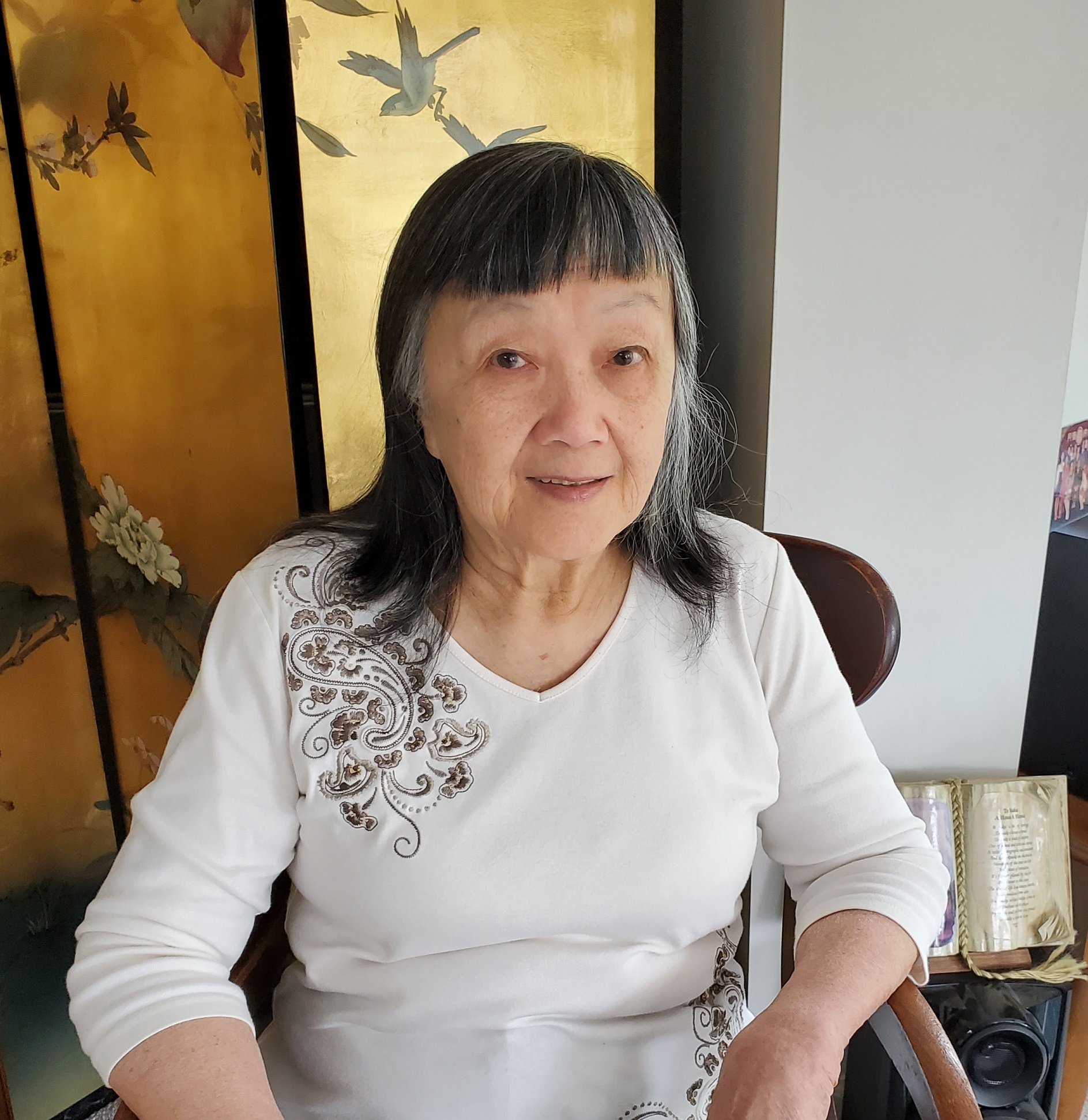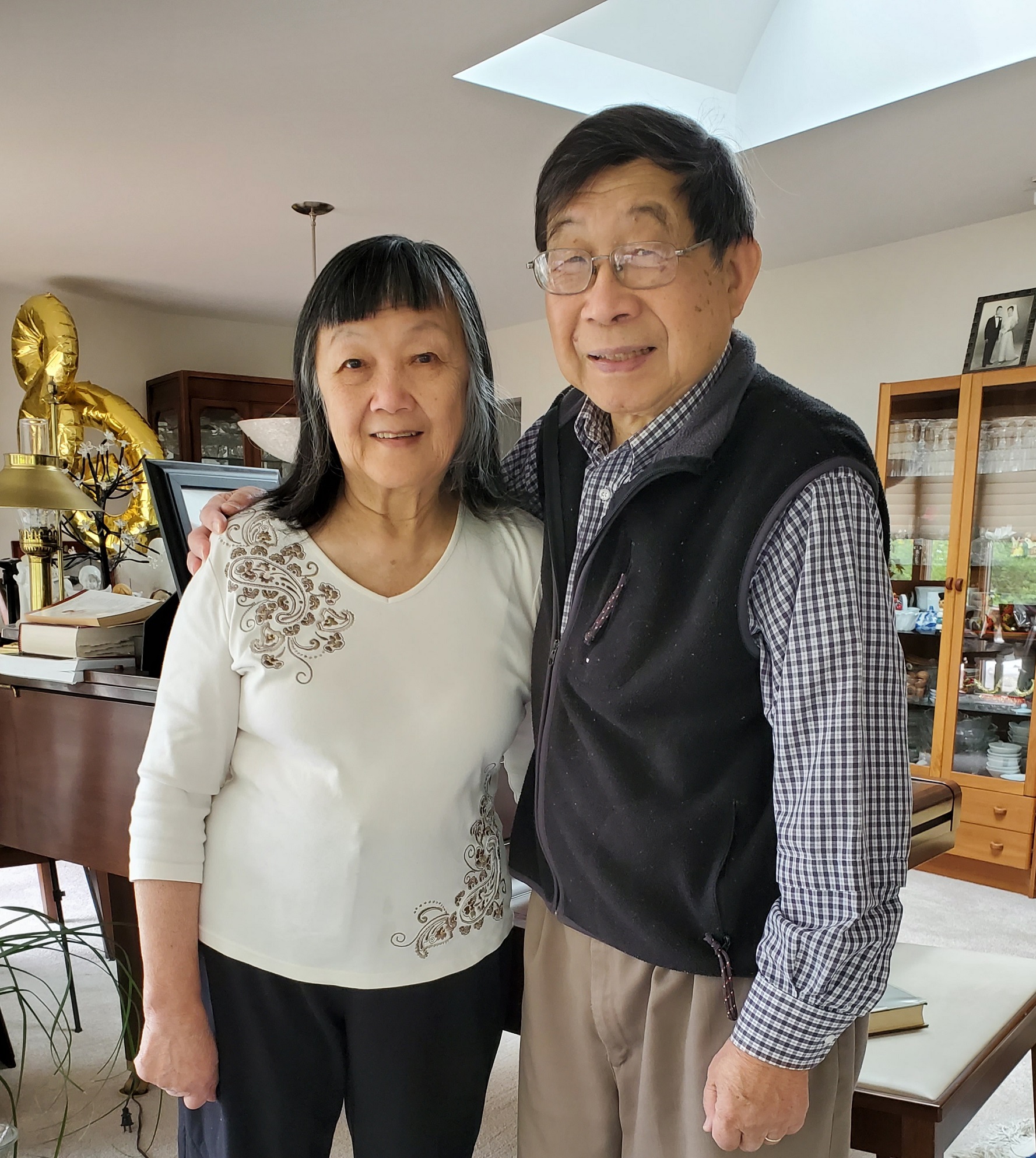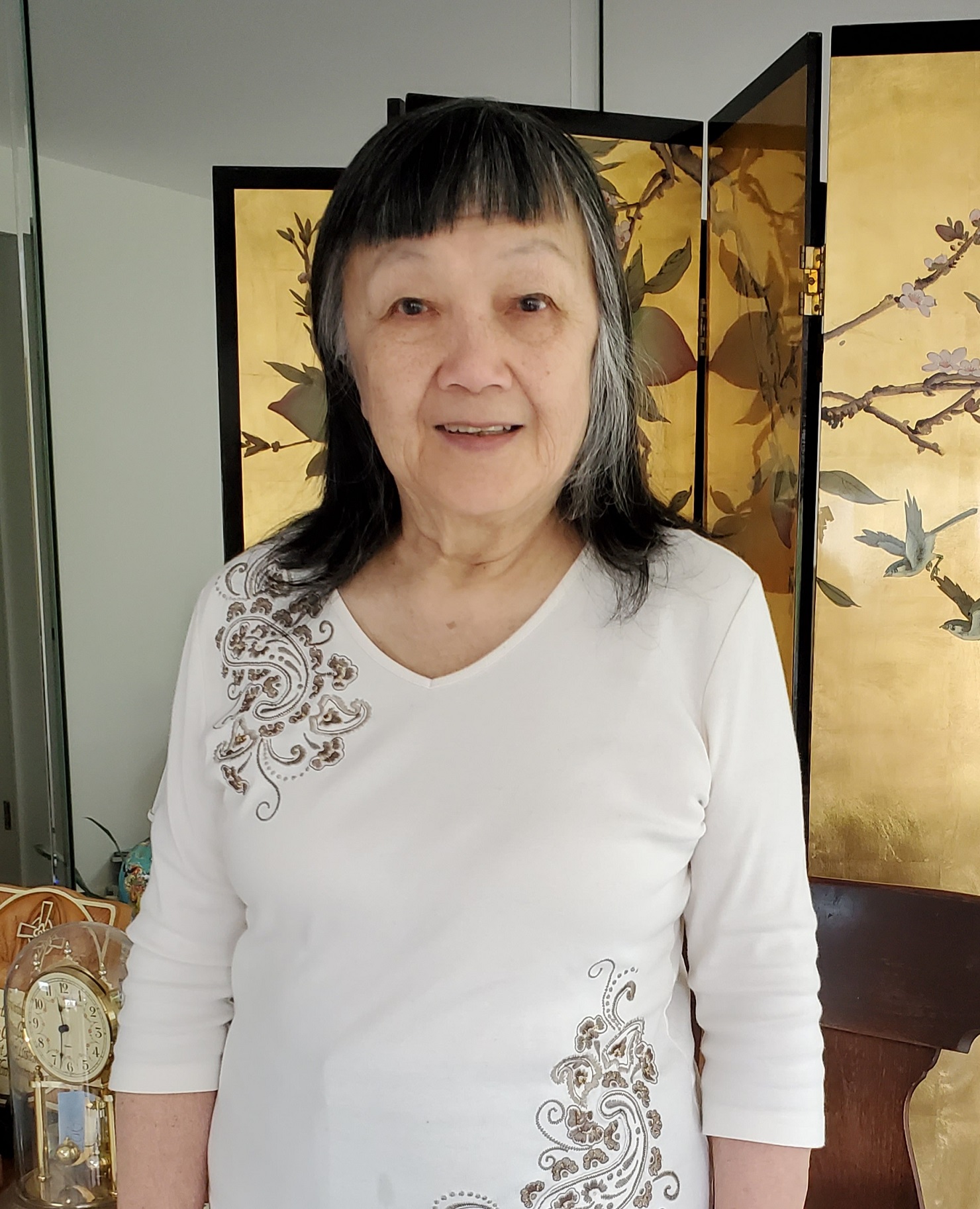“People talk about peace in this world. For me, peace comes within small communities. You create peace among your friends and your neighbors.”

By using her mastery of Chinese dialects and multiple languages – English, Latin, French, German, Russian – as well as her innate ability to connect with people, Helena Law has made an impactful contribution to members of the St. Louis immigrant community who have crossed paths with her over the years.
It was her proficiency in French that landed Law her first teaching job in 1963 at Sumner High School, the first high school established for Black students in St. Louis.
“There were two white teachers and me – all the other teachers were African American,” Law recalled, adding that when some of the students came to her class for the first time, they turned around and left, thinking they were in the wrong classroom. “Everyone was really surprised that I – a Chinese lady – was teaching French.”
Law admits teaching was not what she had in mind upon entering college.
“I wanted to be a doctor initially,” she said. “But when my adoptive parents told me that the only way I can get to college was to earn my own way – I was struggling enough to earn money for my expenses – it was impossible to go into medicine and work part-time. Cleaning houses and doing ironing cannot put you through college, so I decided to major in subjects that I can teach.”
Law took advanced French in college and graduated from Michigan State University with a major in French. Shortly after graduation, she was faced with making some important decisions about her future. Her then-boyfriend, Harold, whom she met during a Christian ministry conference in Illinois, had graduated the previous year from the University of Michigan with a master’s degree in mechanical engineering and was looking for work.
“I was still hoping to get into med school and wasn’t thinking about marrying,” she said. “But things came to a head when he had to move to St. Louis for a job at Emerson Electric. So, we thought, ‘Why don’t we get married and go down together?’”
And so, it was as newlyweds that Helena and Harold Law moved to St. Louis in 1963.
“When we came to St. Louis, I remember crossing the old Eads Bridge… there was no highway, just the bridge… the streetlights were so old…,” she said. “We kept driving on Delmar and came to University City. Harold found this apartment on McKnight and Delmar, and that’s where we settled. Soon after, I started teaching.”
Law spent a year teaching at Sumner before moving on to teach French at Ritenour High School, where she also initiated the school’s annual international festival. After a few more years, she was able to turn her language savvy into an entrepreneurship of sorts by conducting English tutorials to non-English speaking students, evaluating their proficiency in verbal and written English, and serving as a private English tutor to junior and high school students, as well as to new immigrants from China and Russia, among other endeavors.
Along with Harold, himself a distinguished civic leader and community volunteer through the years, their work with the St. Louis immigrant community would be at the forefront of the following decades for the couple. They began volunteering at St. Louis Chinese Gospel Church and assisted immigrant groups who needed a range of services, including counseling, language interpretation, transportation and home visits.

In the mid-1970s, the Laws’ efforts in helping newcomers to St. Louis stepped up even more, with the arrival of Vietnamese refugees following the fall of Saigon.
“It was in the news – the American press were calling them ‘boat people.’ Those who could afford to leave, especially the ethnic Chinese who had been in Vietnam for many generations, left Vietnam to places like Hong Kong, Malaysia and the Philippines by boat,” Law said.
Newspaper reports at the time said as much as 50% of the hundreds of thousands of refugees who took the perilous journey by boat did not survive; some fell ill, others drowned or were attacked by pirates. But even reaching a destination did not guarantee security.
“I know of a family of five,” Law said. “They stayed on a deserted island in Malaysia for more than a year before they were processed to come to St. Louis. Life on the island was very hard. Many of their aged friends just could not make it and died on the island.”
Upon hearing that approximately 2,000 Vietnamese refugees were making their way to St. Louis, the Laws got to work and rallied neighbors and area churches for support. With help from the International Institute of St. Louis, churches and other local organizations, volunteers like the Laws were able to collect roomfuls of donated winter clothing, ready for distribution to the refugees, who were arriving in the dead of winter in 1979.
Law said many of the refugees were ethnic Chinese who were small business owners in Vietnam.
“Many of them very much wanted to learn English because they had to make a living to pay rent, and we were able to communicate with them,” Law said. “I also knew the city well, so I drove them to places. I knew where to find doctors, where to take them – they really appreciated that.”
Law then turned her attention to the younger generation and volunteered to teach English to refugee children after school, even driving some of them home after lessons. Because of her commitment to educating the children, she came to know their families and gained their trust. Law herself learned English as a young girl, at about the same age as her students.
“I think all immigrants struggle so hard. We don’t want our parents to worry about us, so we try to do as best as we can,” she said.
Born in Chongqing, China, Law moved to Hong Kong with her younger brother and adoptive father. The family left for Borneo when she was in her pre-teens and it was on this bustling Southeast Asian island that she mastered English and also discovered her love for other languages.
“In Hong Kong, they spoke Cantonese; in Borneo, we switched to English and I also took Latin and French and German,” she explained. “In Borneo, the British were in control. They put in good roads, made sure communities were protected by police, and they encouraged good schools. People from all the different provinces went to this one school. We had locals, we had Malays, the English – it was truly an international school – and the missionaries were Americans. We used English but we also spoke different dialects. I could get along with anybody.”
This instinctive ability to get along with others would serve Law through the decades as she and her husband continued to advocate for the local immigrant community in one capacity or another.
“Our church had gotten so big – there’s this big influx of immigrants from mainland China – and because of our age, we work well with the senior immigrants that come in,” she said. “Many of them have come to help raise their grandchildren, and when they get older, they don’t know what to do with themselves. Many of them are low-income, and it’s harder if you’re older when you come to a different country, there’s a lot of adjustment. We’ve taken them for cataract operations, eye exams, their physicals…”

Over the years, Law has seen negative attitudes toward refugees and immigrants ebb and flow across the country.
“There was a lot of talk then about refugees taking American jobs away – a sentiment that some people still believe today,” Law said. “My husband and I didn’t understand that. We were on the front lines looking for jobs for the refugees, and there were plenty of minimum-wage and other low-paying jobs available.”
Law says it does not surprise her that the negative perception of some immigrant groups continues today.
“When we first came to America, it wasn’t so much until the Japanese cars, then you had a lot of people against the Japanese,” she said. “Now, because of the COVID thing, people are angry, they’re blaming the Chinese. They just have to blame it on somebody, they have to blame a group.”
In their own way, the Laws and others like them have guided countless newcomers to St. Louis not only on how to survive and adapt to their new home, but also how to be part of a community.
“People talk about peace in this world. For me, peace comes within small communities. You create peace among your friends and your neighbors,” Law said. “In our subdivision, we have about 40 or so homes and it’s a very interesting mix. We have Koreans, Indians, Japanese and other nationalities – we feel very comfortable here.”
The Laws have raised four children, who are now in their 40s and 50s, and have three grandchildren. Despite some of them now living in other parts of the country, with the eldest daughter in Milan, Law still considers their St. Louis home the family’s central gathering spot.
“We don’t have too many relatives, so we have fewer people, but we’re more intimately connected with them,” she said, referring to their small circle of family and friends post-pandemic. “We are coming out of a nightmare, so we’re closer than we used to be. After not being able to see each other, we’re treasuring the times we now have together.”






I knew Helena in 2003…
It’s been 19 years, and I found you here!
I am so excited.
Look forward to hear from you.
Hong or Shong, from Mexico, MO
The first generation of immigrant from Shanghai, China in this small city.
Helena, I am so excited find you here.
Please contact me anytime at your conveniences.
Warm regards.